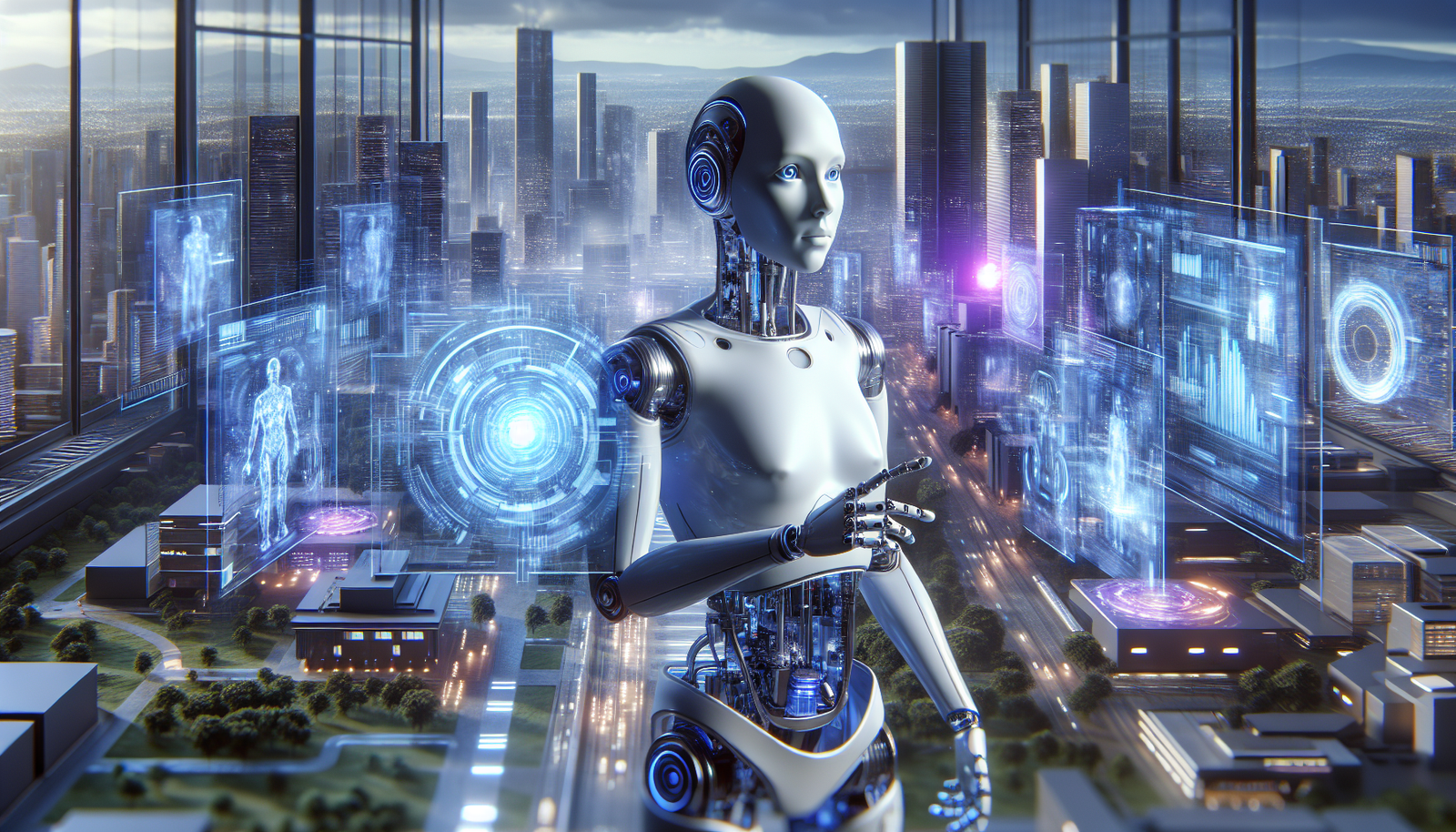The emergence of Manus AI redefines the boundaries of *autonomous artificial intelligence* in China. This revolutionary system, created by the startup Monica, *illustrates an unprecedented technological leap*. By challenging the supremacy of Western models, it breathes an *unexpected* autonomy and promises to revolutionize various sectors, redefining our interactions with technology. Manus AI does not merely assist; it *executes complex tasks* with remarkable ingenuity and adaptability. A true advancement that questions the future of *artificial intelligence* and the ethical implications that ensue.
Manus AI, an artificial intelligence agent developed by the Chinese startup Monica, redefines the standards of autonomous AI. This innovative system, a true technological prodigy, stands out for its ability to execute complex tasks without human intervention. Unlike traditional AIs, Manus operates with *unprecedented autonomy*, marking a decisive turning point in the world of artificial intelligence.
China, by launching into the design of Manus AI, sends a strong message about its determination to dominate the global technology sector. The startup Monica, part of the Butterfly Effect group, is at the forefront of this technological excitement. The advanced features of Manus enable the automation of various processes, ranging from data management to customer interaction, thus transforming the industrial landscape.
Revolutionary Features and Capabilities
Manus stands out thanks to advanced learning and decision-making capabilities. By integrating sophisticated algorithms, it can analyze massive volumes of data and formulate recommendations tailored to each situation. This level of performance far surpasses the skills of competing tools such as OpenAI and ChatGPT, establishing Manus as a potential leader in the field of autonomous agents.
Users can expect an intuitive interface that facilitates the adoption of this new technology. Manus AI integrates easily into existing systems, allowing companies to rapidly transform their operations. Its exclusive access is already envied by major companies in the sector, which are considering integrating this agent to improve their efficiency.
Ethical and Economic Implications
Although Manus paves the way for countless possibilities, ethical and economic questions inevitably arise. The rapid rise of autonomous agents like Manus could lead to disruptions in the job market. Concerns arise about the automation of tasks traditionally reserved for humans, sparking debates around the future of technology-related professions.
Experts in digital ethics highlight that the integration of artificial intelligence must be accompanied by deep reflection on its consequences. Issues of responsibility, security, and data control remain crucial. The need to regulate these technologies through adequate regulations becomes evident in order to maintain a balance between innovation and the protection of individual rights.
An International Discussion Topic
On the global stage, the emergence of Manus AI raises significant excitement. The United States and other nations fear that such technological advancement could widen the gap between powers. The tech war takes on a new dimension here, where the ability to innovate in the field of artificial intelligence could redefine economic power dynamics.
Regulatory bodies and think tanks also question the collateral impacts that this technology could generate. The international community is seeking guidelines that could help regulate the emergence of such technologies. The need for constructive dialogue among governments, businesses, and researchers now seems imperative.
The trajectory of Manus AI remains to be defined, but its potential for transformation is undeniable. As technology continues to evolve, the world cannot ignore the ramifications that accompany it, both economically and ethically. The dynamic between innovation and responsibility will be an essential observation point for the coming months.
Frequently Asked Questions
What is Manus AI and what are its main features?
Manus AI is an autonomous artificial intelligence agent developed by the Chinese startup Monica. Its main features include the ability to execute complex tasks independently, learn from past experiences, and automate various processes across different sectors.
How does Manus AI compare to other artificial intelligence agents like ChatGPT?
Manus AI offers a superior level of autonomy, allowing it to act without human intervention, while systems like ChatGPT often require constant interaction with users to function effectively.
What are the economic impacts of implementing Manus AI?
Manus AI could transform entire sectors by automating tasks previously performed by humans, which may enhance efficiency, reduce production costs, and create new business models.
What ethical challenges are posed by the use of Manus AI?
The main ethical challenges include privacy concerns, algorithmic decision-making without human oversight, and implications for employment, particularly in sectors where automation replaces workers.
In which sectors can Manus AI be most beneficial?
Manus AI has the potential to bring significant benefits to various sectors such as healthcare, manufacturing, logistics, and customer service, thanks to its automation capabilities and rapid decision-making.
How does the learning process of Manus AI work?
Manus AI uses machine learning algorithms that allow it to process large amounts of data, learn from its interactions, and improve its performance over time through the feedback it receives.
What technological advancements are specifically attributed to Manus AI?
Manus AI incorporates advancements such as natural language processing algorithms, improved image recognition, and real-time decision-making capabilities, making it extremely competitive against existing AI technologies.
What feedback do users of Manus AI report?
Users of Manus AI generally report efficiency gains in their processes, increased customer satisfaction, and a reduction in human errors when implementing it in their operations.
Can Manus AI be used globally or is it limited to China?
Although Manus AI is developed in China, it is designed to be adaptable and can potentially be deployed globally, taking into account the regulations and specific needs of each country.






